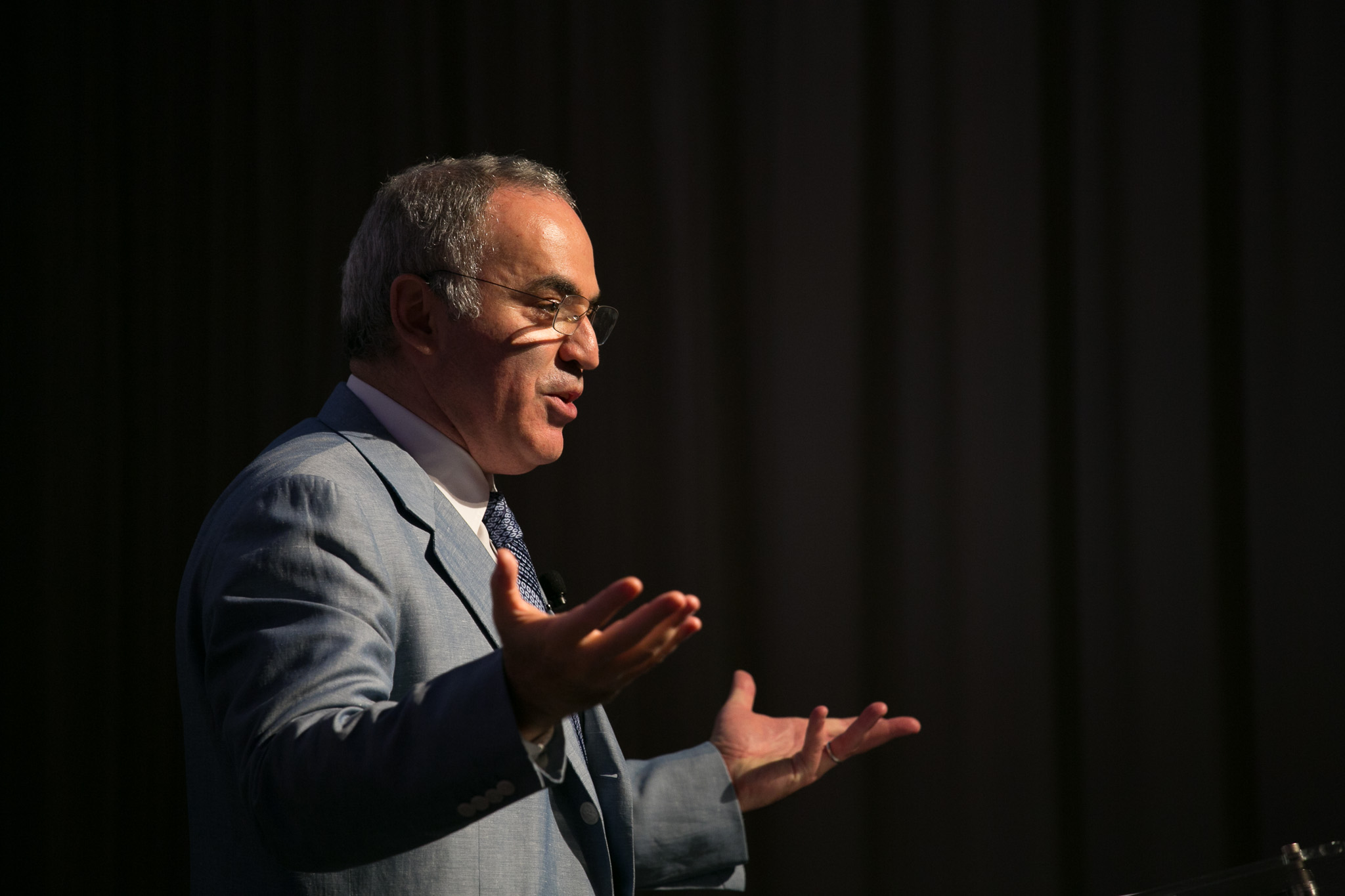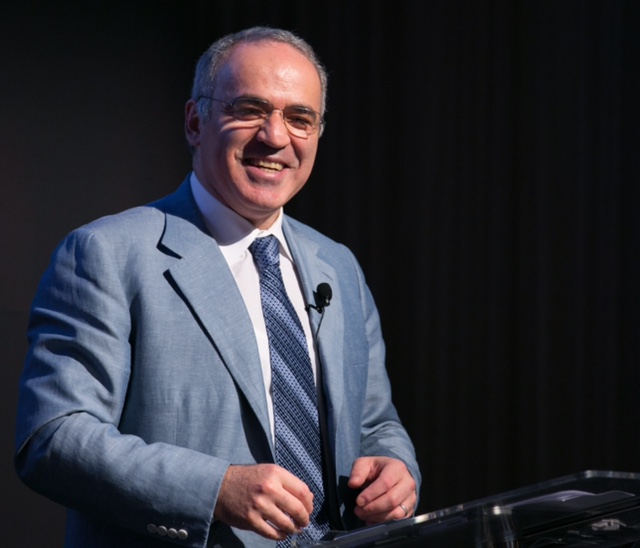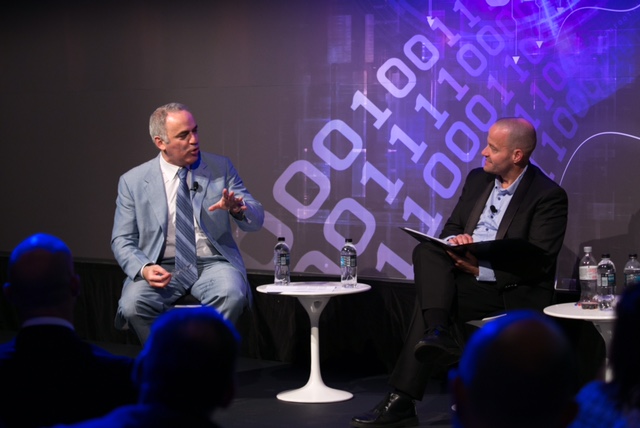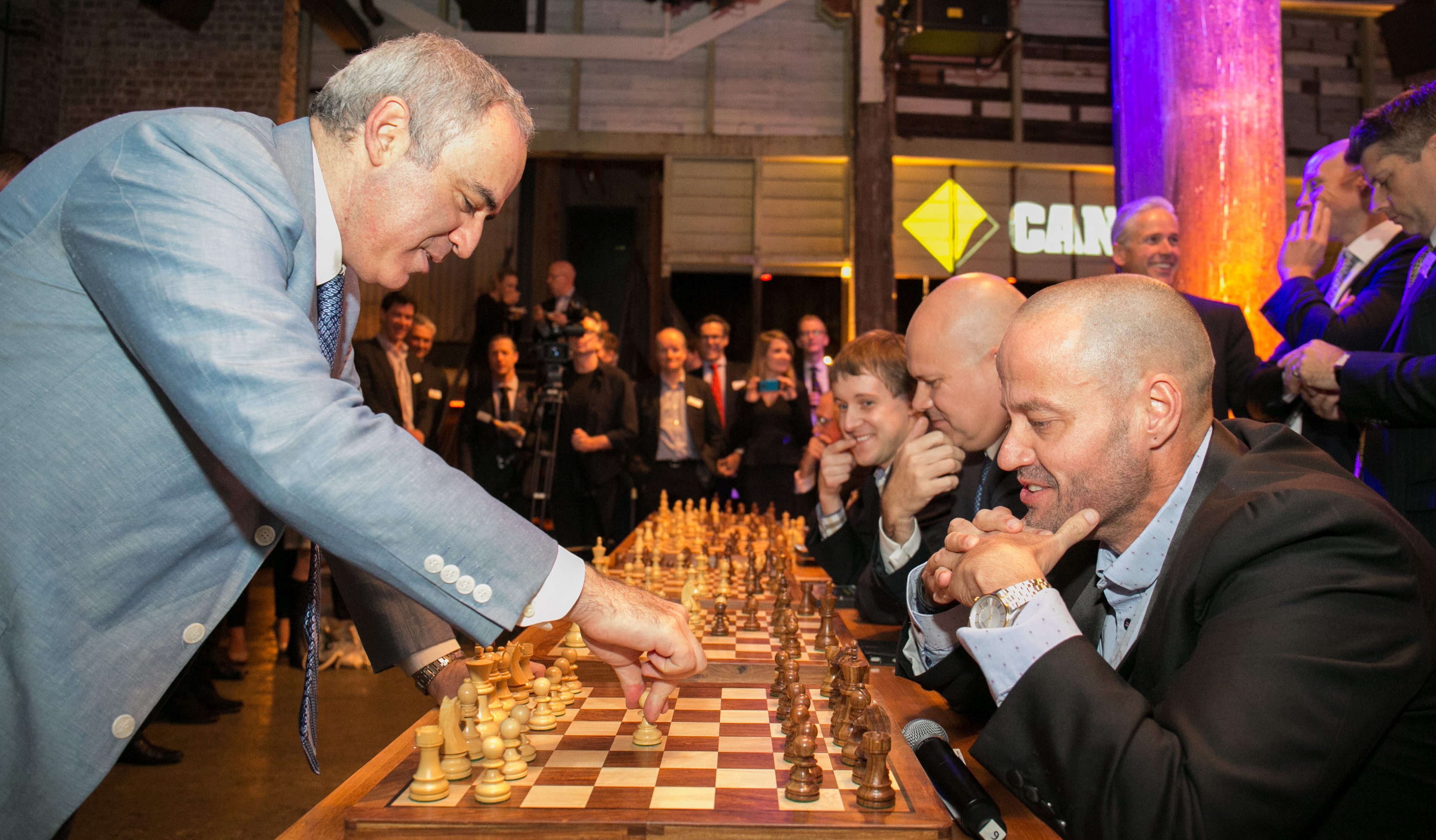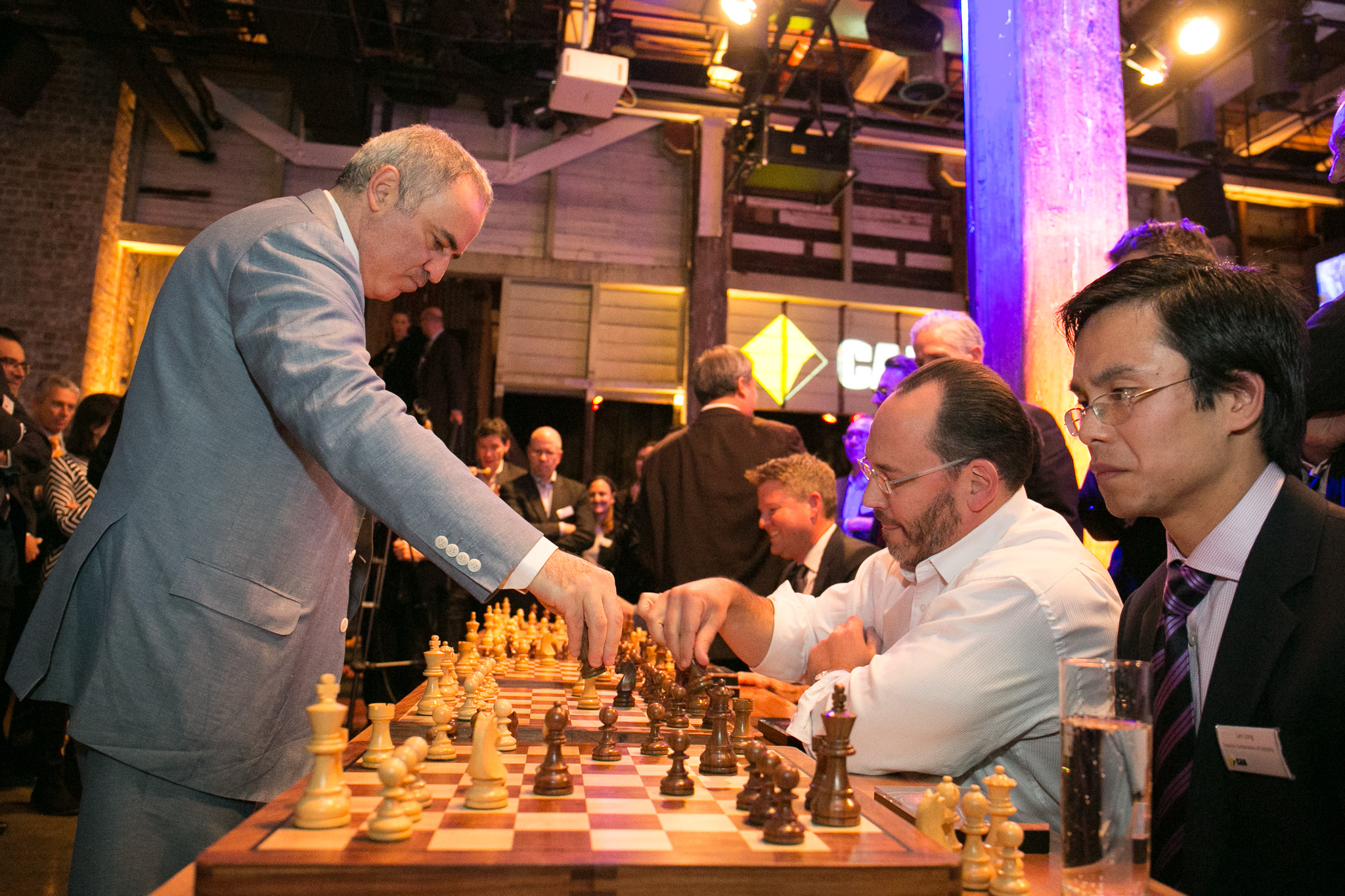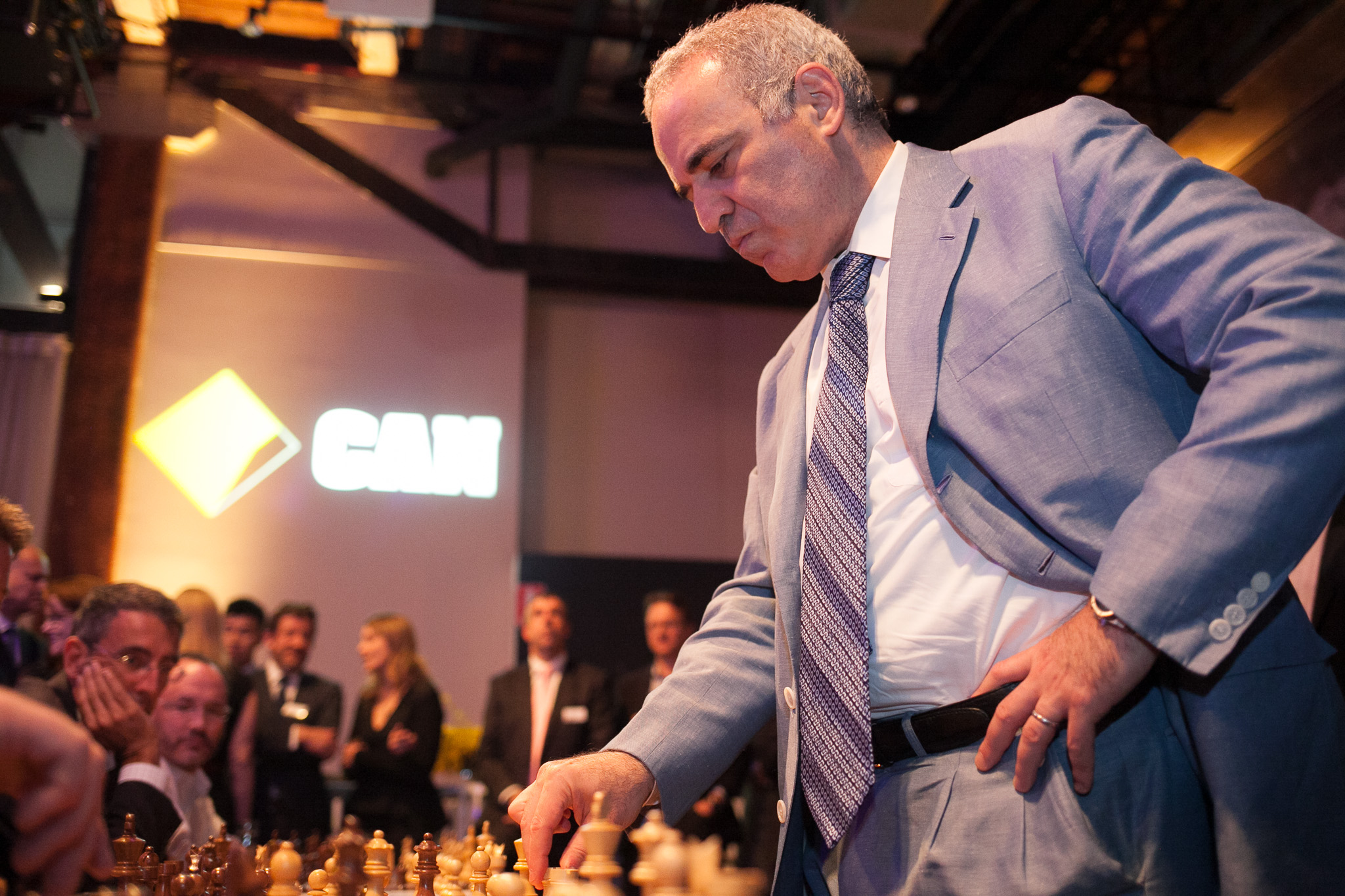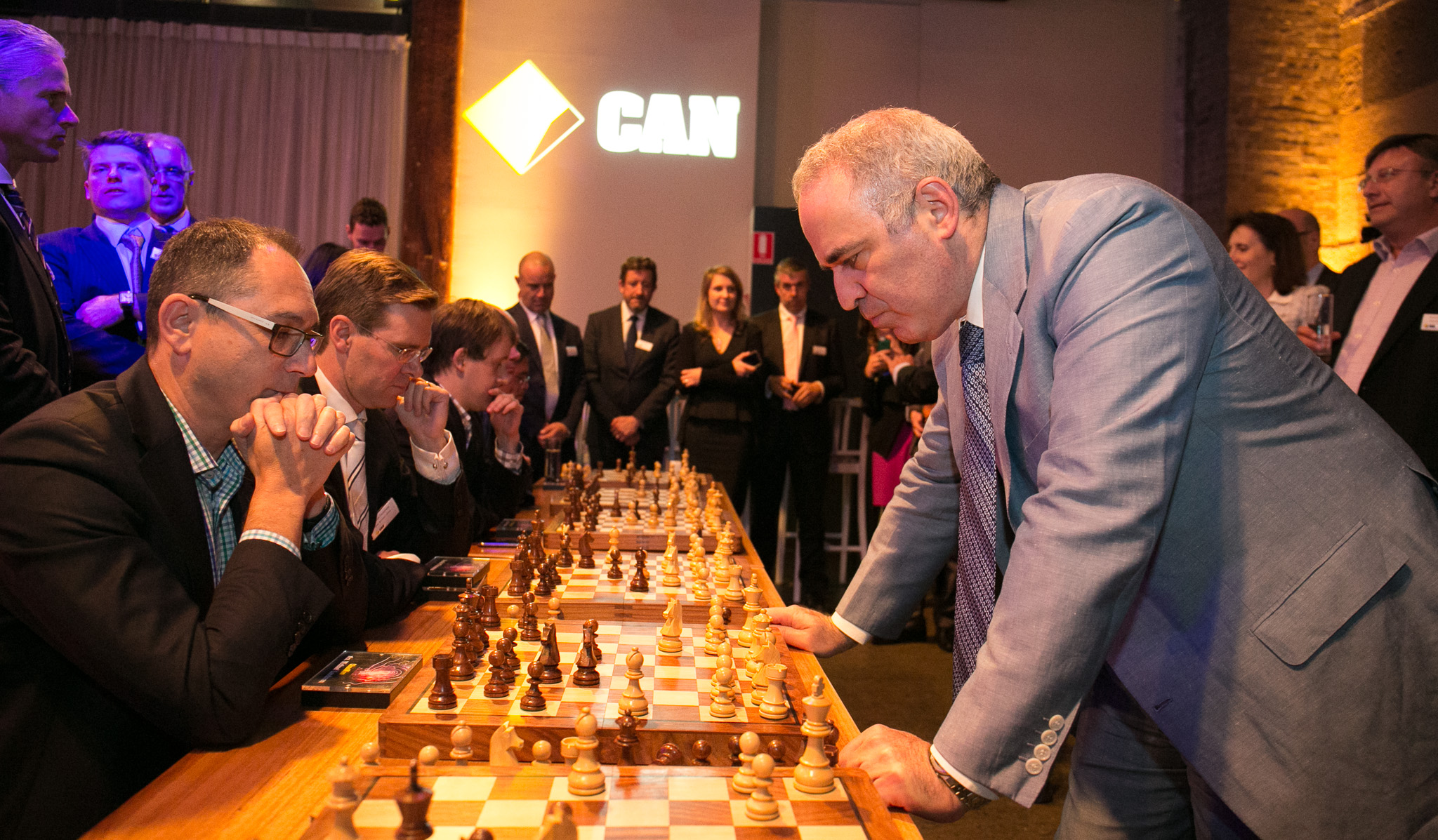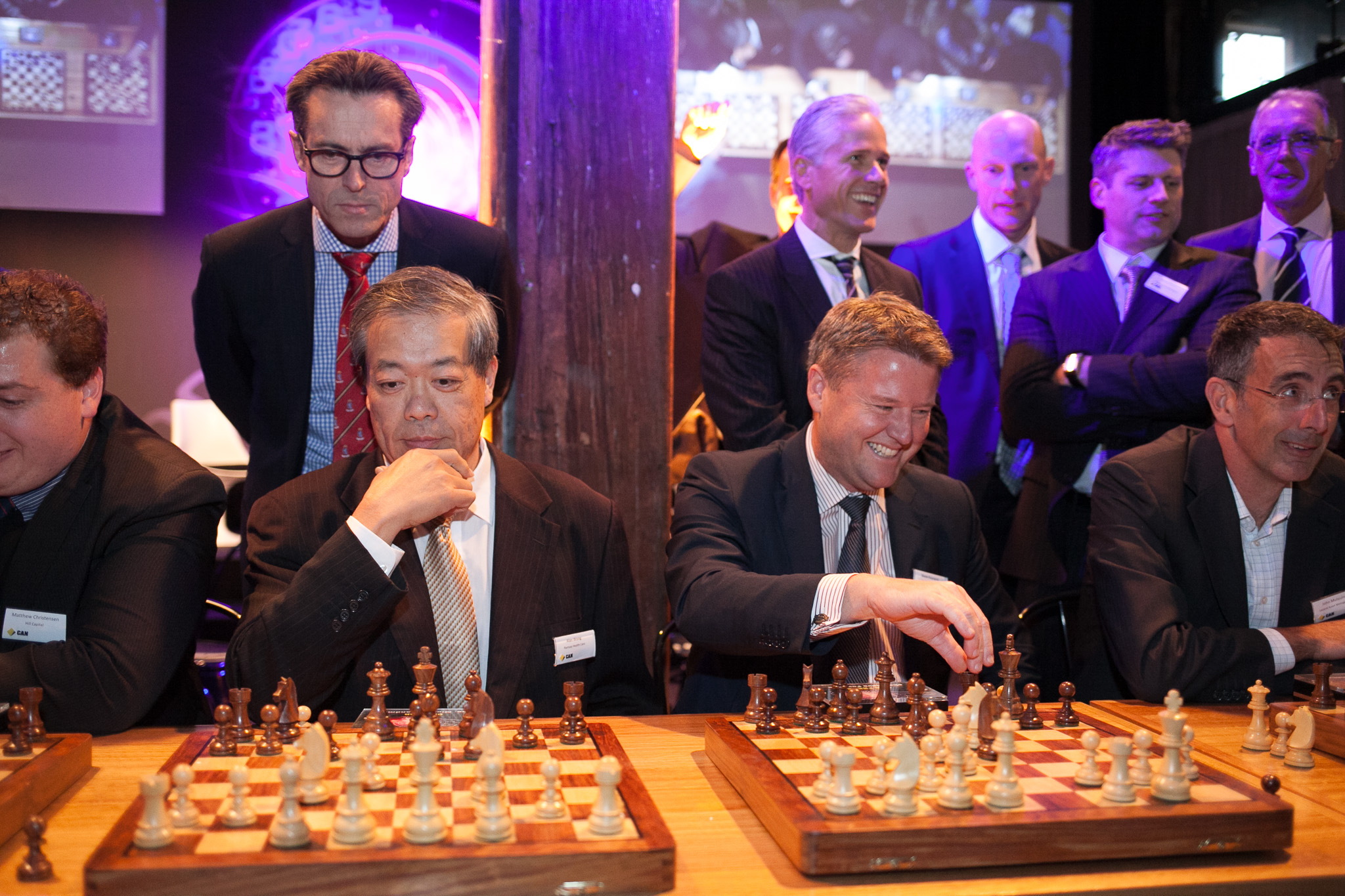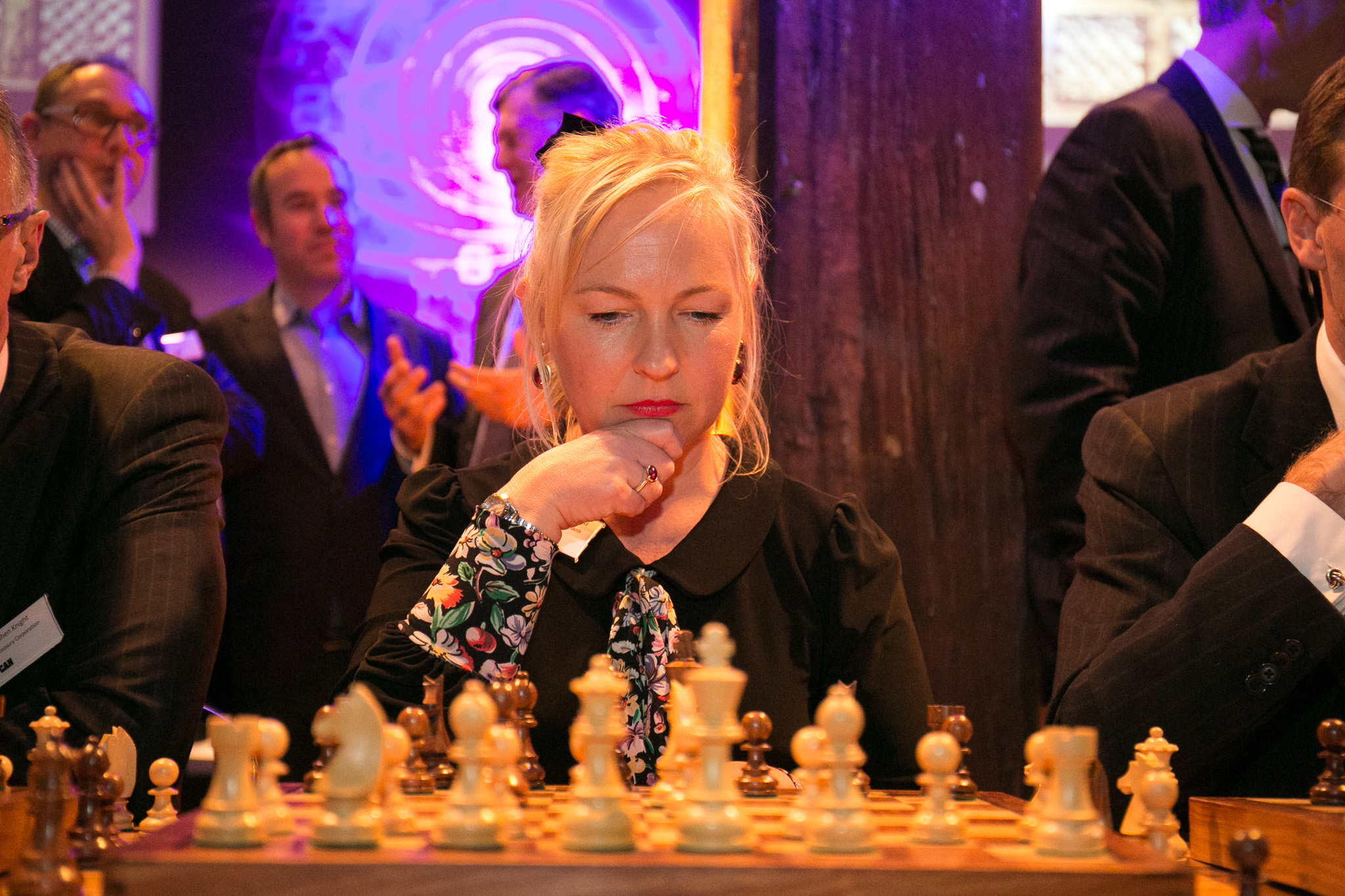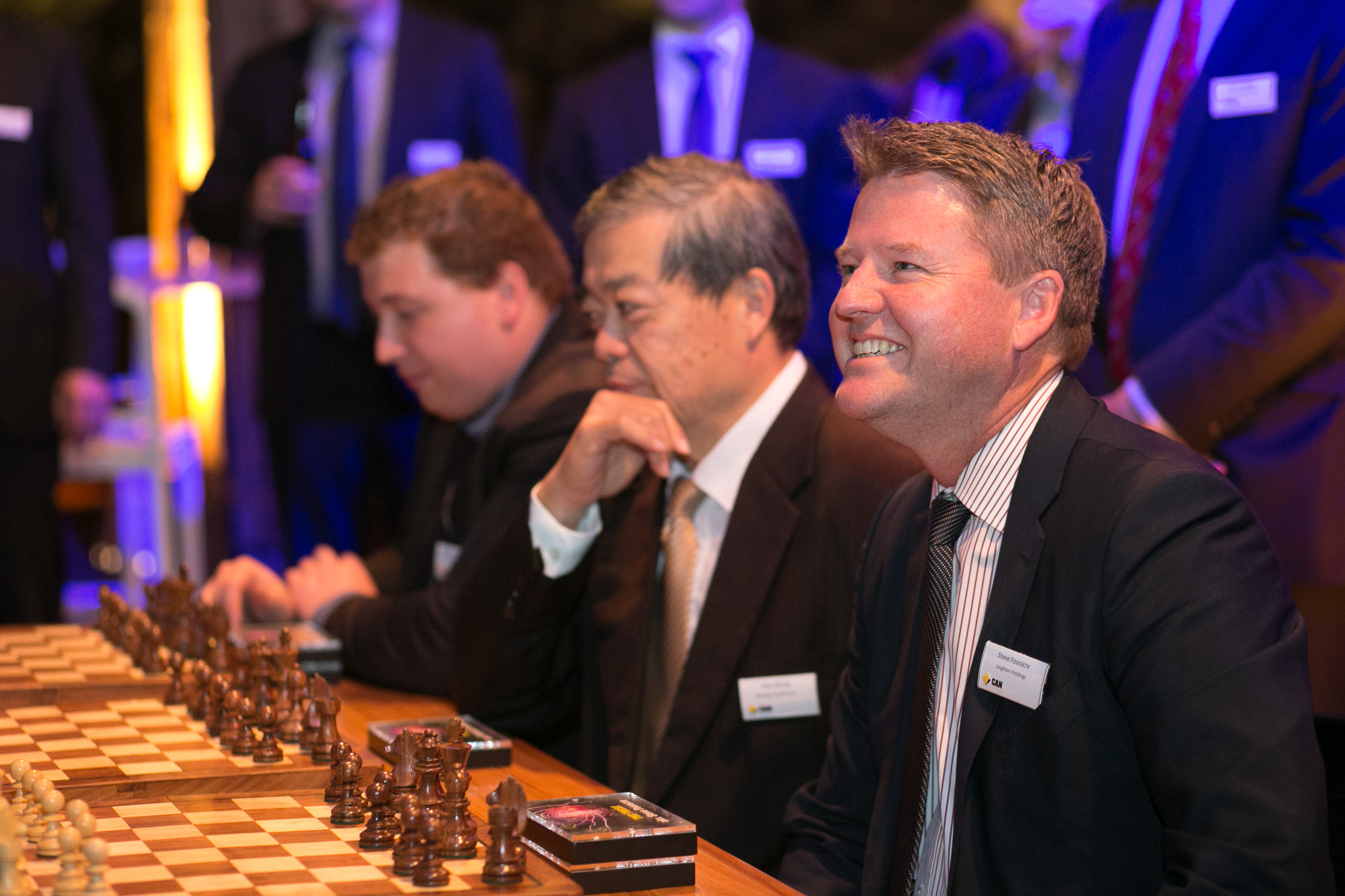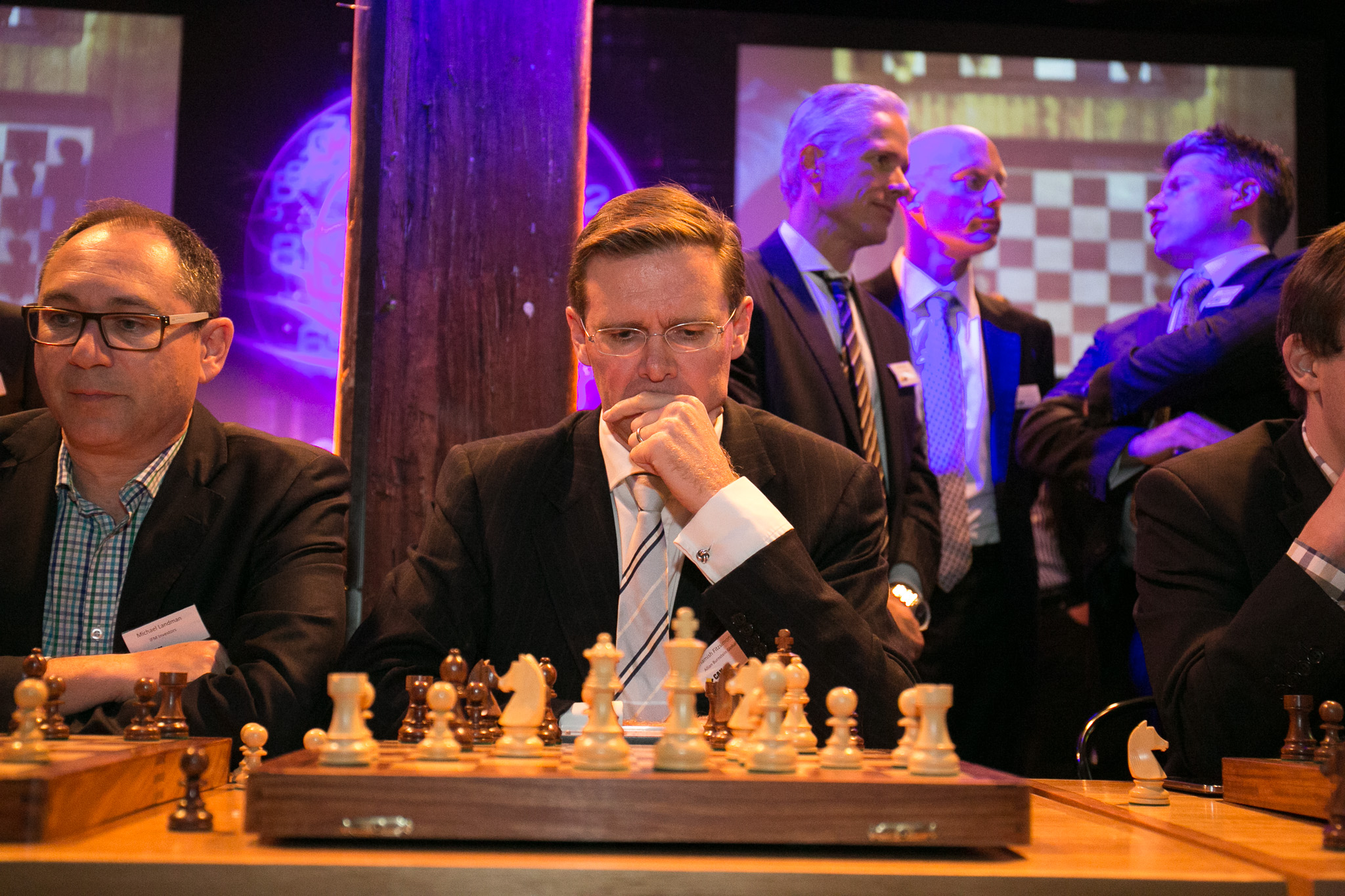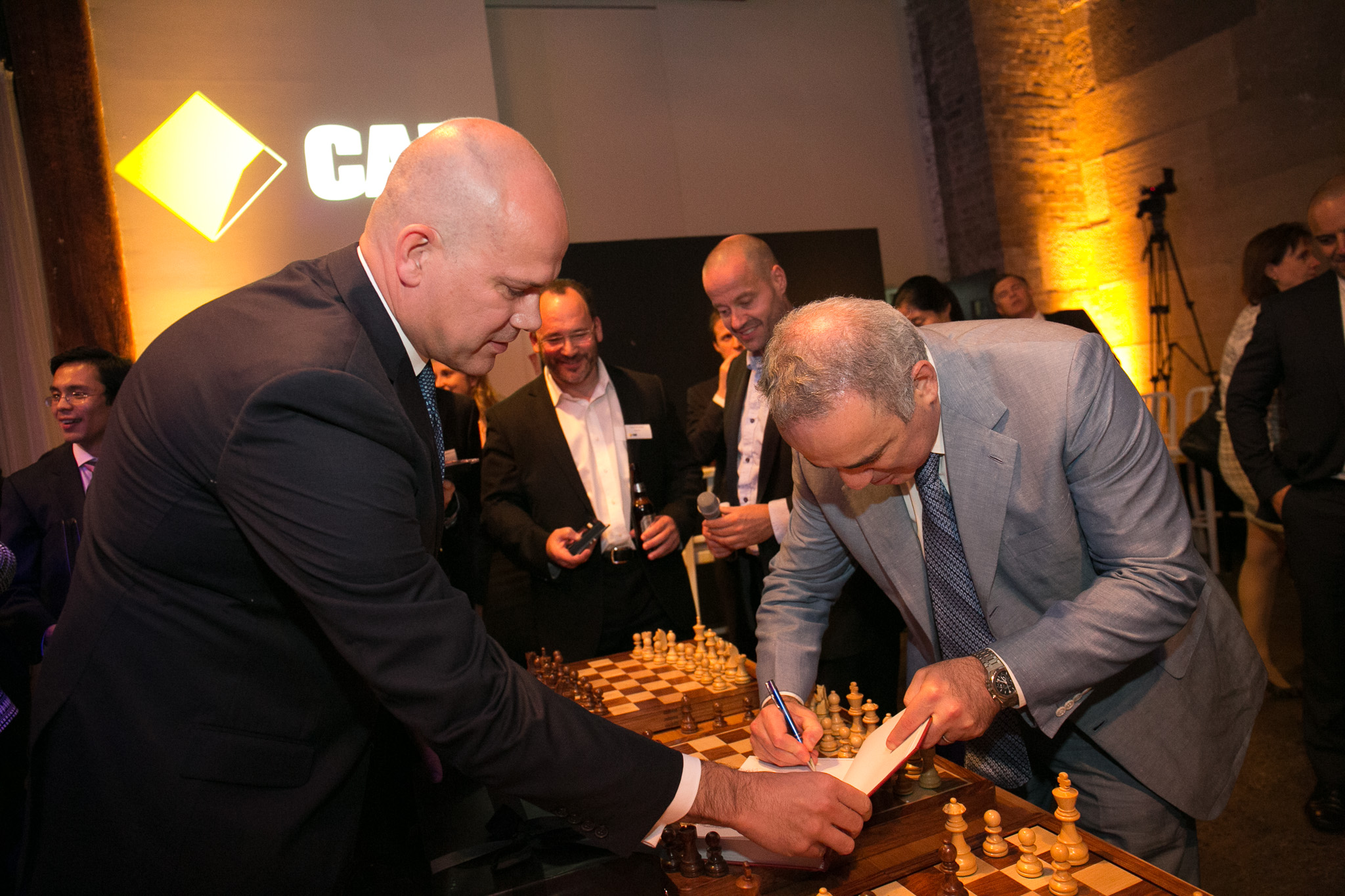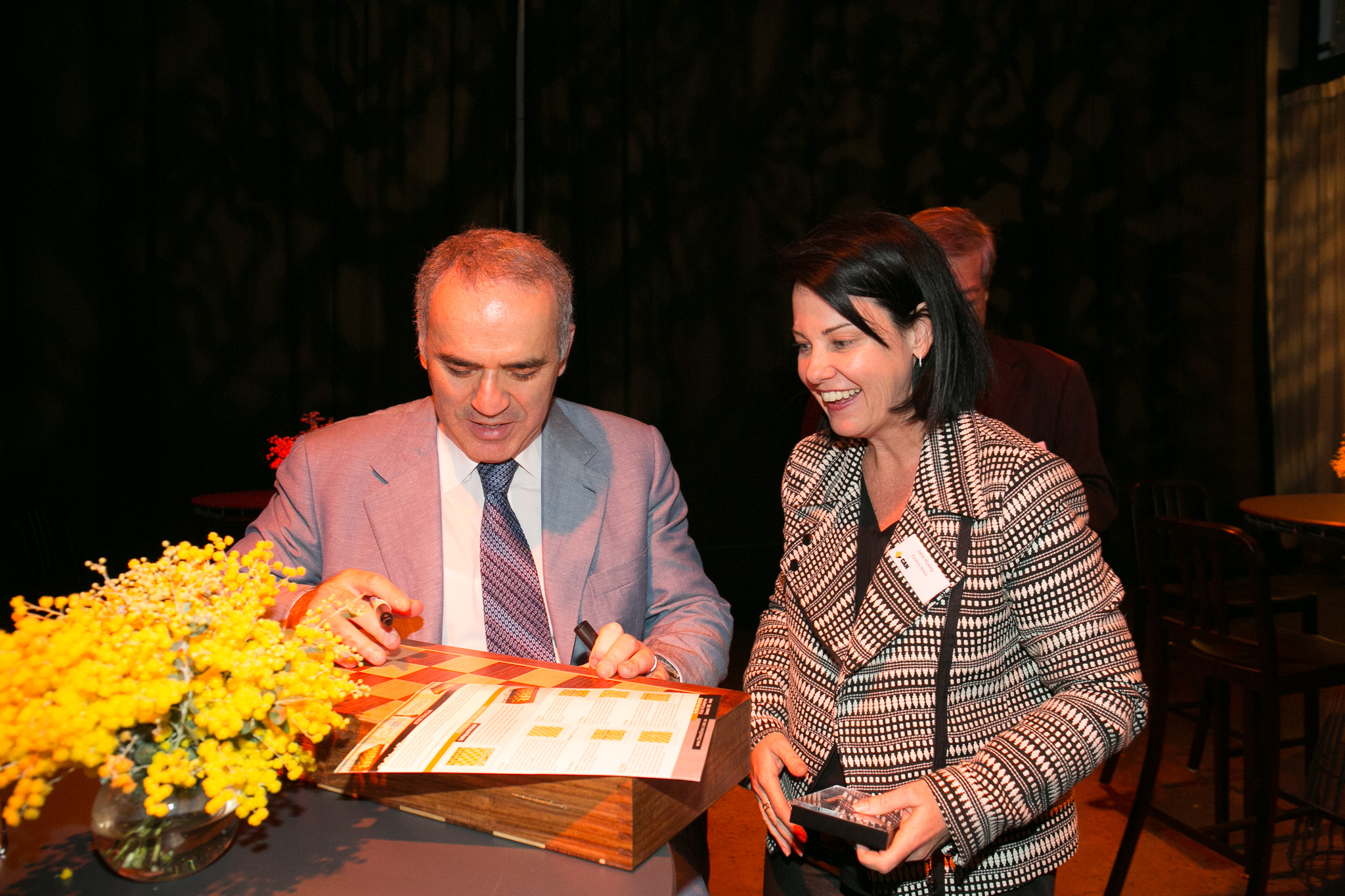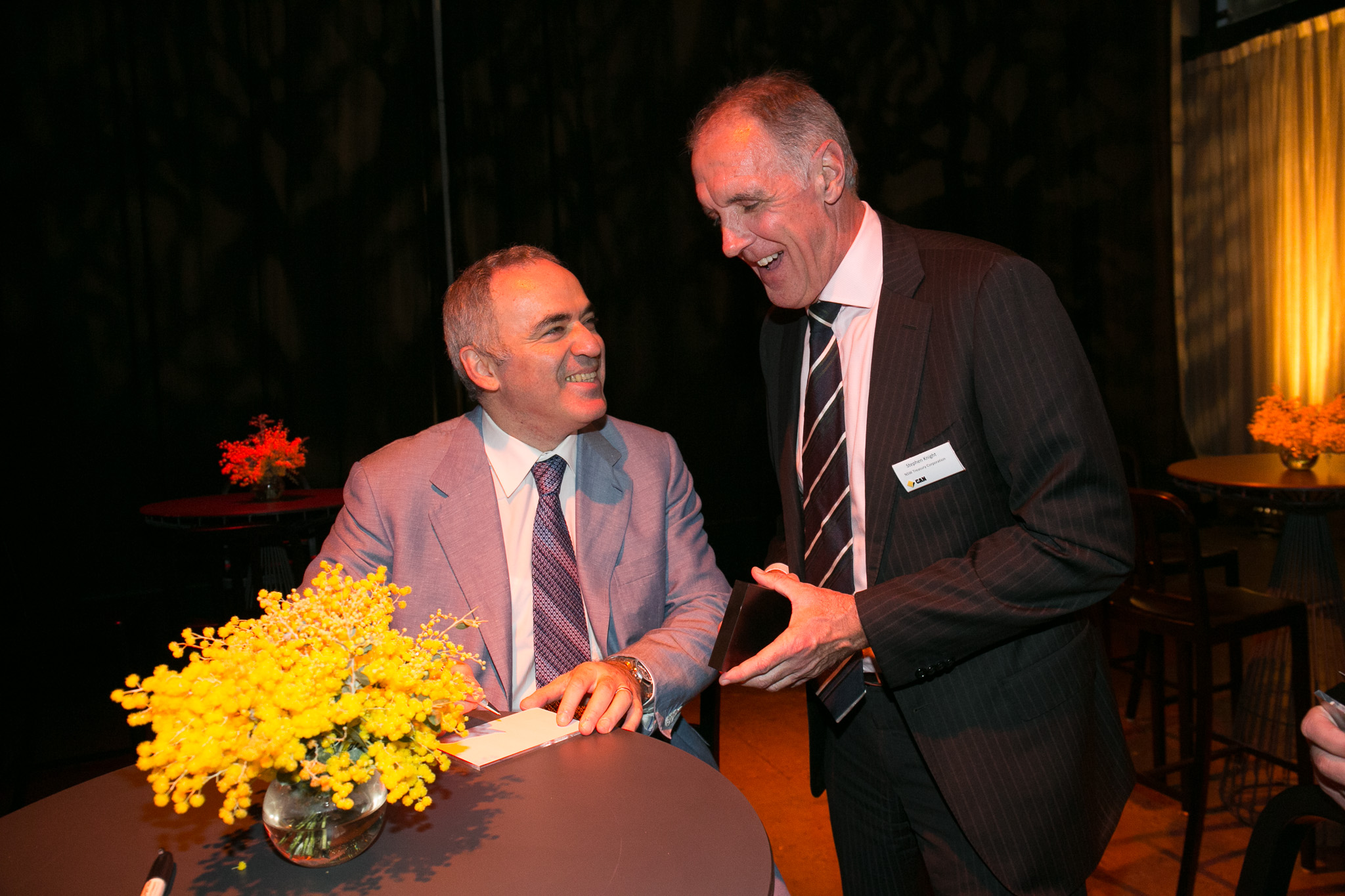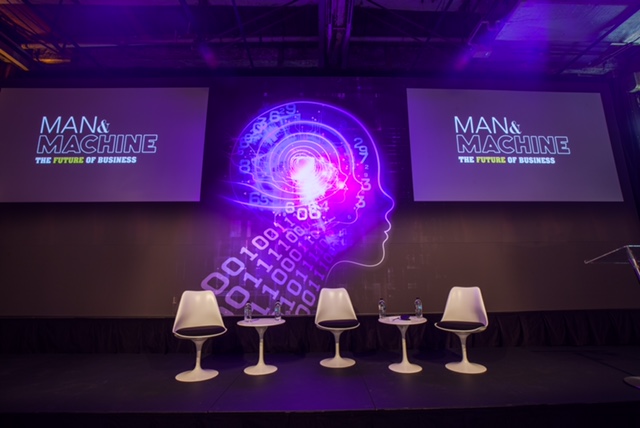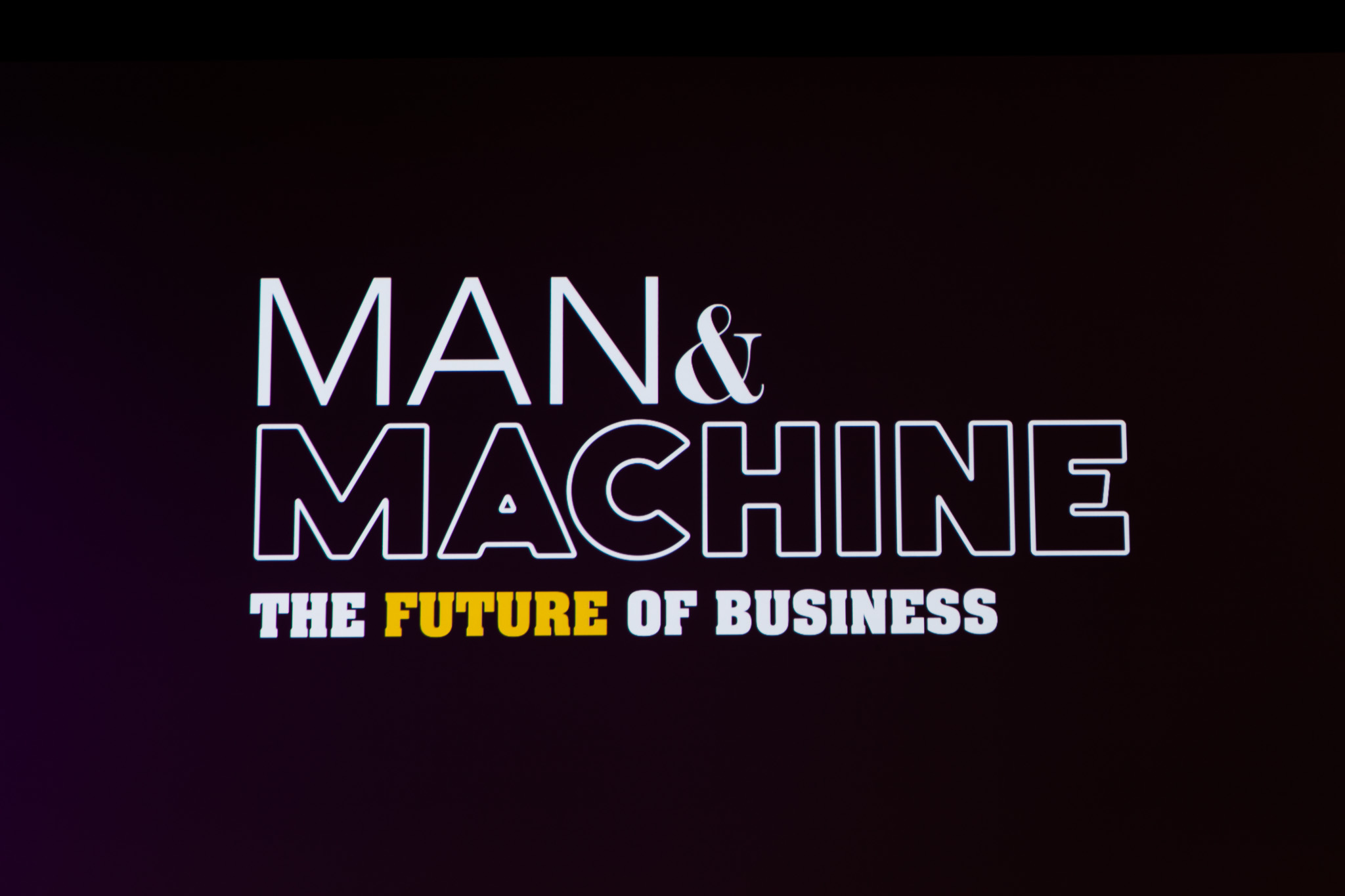On May 27th, 2015 Garry traveled to Sydney, Australia to take part in a discussion “Man & Machine: The Future of Business” organised by Commonwealth Bank.
The key-note and discussion focused on artificial intelligence and its place in the present and future of humanity.
Here are some parts of the discussion and a photo gallery of the event.
Man & Machine: Kasparov’s talking points:
- The origin of technology is to make human life easier. We make tools to do our work more efficiently and this line of history connects stone tools to productivity software. If our only goal as humans is to survive, machines to help us do this would be enough. But we want to do more than survive. We want to explore, to enjoy, to compete, to understand. And so we have created machines, tools, to help us do all of these things as well as to survive. And as long as humans are interested in doing new things, in exploring, enjoying, and understanding new things, we will need a human element in developing and creating our world.
- Our machines always catch up to us in different ways so we have to stay ahead of them with fresh ideas. If we were happy with being hunter-gatherers we could have stopped with those stone tools! If we are happy with what we have now, we can stop with the tools we have now. But that is not human nature. Unfortunately, we are seeing a slowdown in areas like education and exploration that are essential for creating broad new industries.
- The danger is complacency, not technology. The slower we go in our research and exploration, the easier we make it for our machines to catch us and replace us. Many jobs today didn’t even exist 20 years ago. E-commerce consultant. Social media manager. Data mining specialist. App developer. Genetic counselor. Drone pilot. 3-D printer. That will also be true in another 20 years. That is, it had better be true! We need to keep pushing the edge of the risk/reward ratio so we can find new things that will spawn new industries and new careers. If we stick to predictable, milestone-oriented progress, the imbalance between new careers and jobs and automation will grow too fast. There are always imbalances, but if we keep trying to open new worlds we will manage them well enough.
- The goal in automation has always been to replace or augment the human, whether it’s a mechanical loom or a trading algorithm. This is natural and healthy, but it also has limitations. It risks cutting out what humans are good at. Intuition, ideation, moral guidance. Even in cutting-edge artificial intelligence research we see them pausing in some directions and working on how to insert the human mind into the process because the results are better. From hedge funds like Bridgewater to counter-terrorism data analysis, they are finding ways for humans to interact with the algorithms.
- Coming up with new ideas will always be for humans. Machines that level the playing field make having new ideas even more important. So part of our challenge is to give more people the possibility to work with ideas. This isn’t as simple as giving every kid an iPad, unfortunately. But education has to become more interactive, more dynamic, more creative to keep pace. Otherwise, we will have a culture of stars who control the tools, superstars who make the tools, and the rest.
